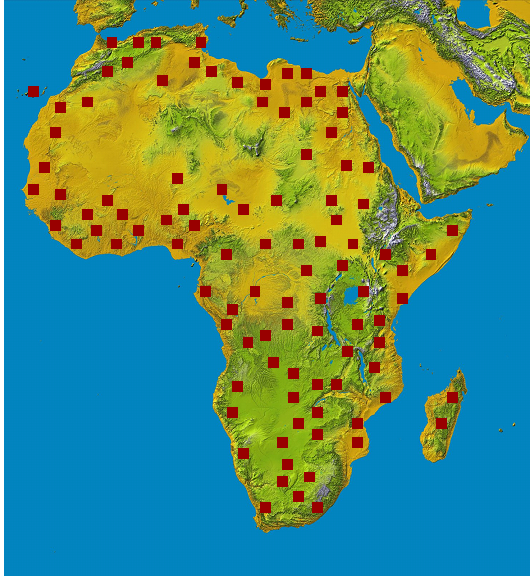"All developments on this planet are connected with building."
Johann Bögl (CEO of the construction company Bögl)
Experts always name Africa as the key growth area in the coming decades. Up until now, this vision has been a fata morgana.
Neither did the Millenium villages of the American economist Jeffrey Sachs as well as the United Nations show any significant progress, nor do the research activities of the latest Nobel Prize winners Esther Duflo and Abhijit Banerjee point out any conclusion ("There is no catch-all solution"). The Chinese infrastructure investments are only a first step. As well as the efforts of the German government (promotion of investments by medium-sized companies) which are only a drop in the ocean.
Africa needs several million jobs
This will work out if agriculture and the construction industry will be promoted simultaneously. By making agriculture more productive, less labour will be needed. At the same time the improved productivity level needs a greater purchasing power at a local and regional level.
The creation of residential accommodation, schools and hospitals does not only improve the quality of life sustainably. It rather generates jobs and thereby income for a lot people at the same time. This will be the basis for a sustainable economic development in Africa.
The World Bank's forecast for Africa predicts 85,000 new hospitals, 310,000 primary schools and 700 million apartments which will be needed by 2050.
However, the implementation of this strategy requires considerable higher efforts for the planning. Complete solutions are necessary. In an age of digitalization it should be possible though to successfully manage these complexe processes.
100 projects of this kind
- with an entire investment volume of 10 billion Euros
- based on a period of 10 years
- with a financial plan
will enable Africa to start into a new age.

The successful implementation of the outlined strategy
- will solve the issue of refugees
- will transfer the European Union to a key player on the African continent
- will let European companies tap into great market potentials
- will make a sustainable contribution to solve the climate crisis
- will ensure economic, political and social stability for African countries.
Therefore it is also a peace project - comparable to the developments in Europe after World War II.



